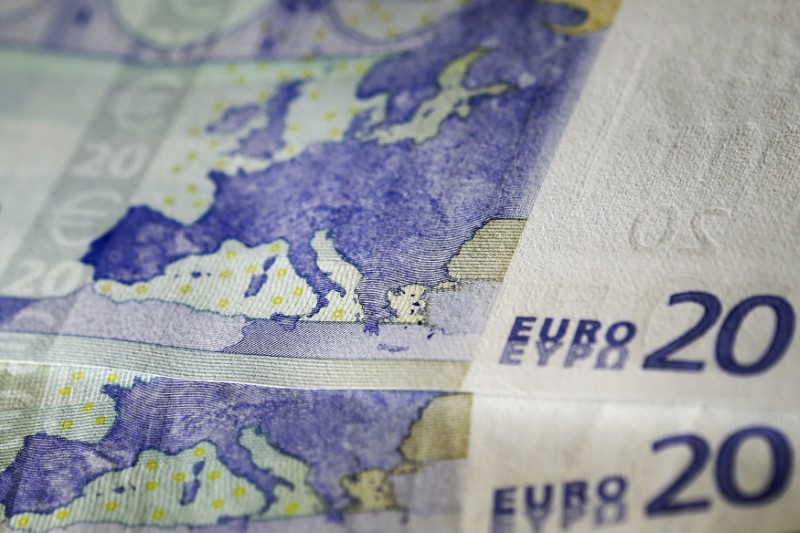By Francesco Guarascio
BRUSSELS (Reuters) - The euro zone economy confirmed a robust expansion in the second quarter of the year, growing twice as much as Britain for the second consecutive quarter, preliminary estimates released by the European Union's statistics agency showed on Tuesday.
The reading confirmed the trend begun this year as the 19-country currency bloc consolidates its recovery while Britain starts to feel the negative impact of its decision to quit the European Union.
Gross domestic product (GDP) in the euro zone increased 0.6 percent on the quarter, after a slightly downwardly revised 0.5 percent rise in the first quarter, Eurostat's data showed.
In the March-June period, Britain's economic output grew by 0.3 percent on the quarter, edging up from a sluggish rate of 0.2 percent in the first three months of the year.
Britain's slowdown comes after the country showed robust growth last year, outgrowing the euro zone in the last three quarters.
The loss of pace coincides with the beginning of divorce talks with the EU in March and increased prospects of no access to the EU market after Brexit for Britain-based companies.
Meanwhile, the euro zone economy has picked up speed, bolstered by higher business optimism, strong domestic consumption and decreasing unemployment, which in June reached its lowest level since 2009.
In annualised terms, the euro zone economy expanded 2.3 percent in the second quarter after a 2.0 percent rise in the first three months of the year, Eurostat said.
"All in all, the euro zone economy has rounded out the first half of the year in a very healthy state and seems to be set up nicely for continued firm growth for the rest of 2017," Bert Colijn, senior economist at ING said.
In its latest forecasts, released in July, the International Monetary Fund estimated the euro zone would grow 1.9 percent this year and 1.7 percent in 2018, above Britain's projected growth of 1.7 percent this year and 1.5 percent next.
The EU economics commissioner, Pierre Moscovici, said the new estimates could likely lead to an upwardly revision of the commission's forecasts, which in May predicted a 1.7 percent rise of euro zone's output this year and 1.8 percent in 2018.
Updated estimates of euro zone GDP growth in the second quarter will be released by Eurostat on August 16 and final data will come on September 7.

The healthier state of the bloc's economy could support European Central Bank's plans to begin a tightening of monetary policy in autumn, although headline inflation remained stable at 1.3 percent in July, below the ECB target of below but close to 2 percent.
